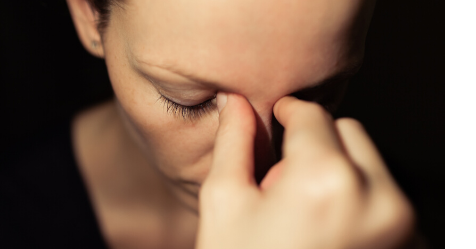|
"I feel like I have no control over my life" "The 'to do' list never ends" "I can't seem to finish anything I start" "My toddler is ruling the roost" "I'm trying so hard to be a good parent but I'm worried that I'm not" "I'm exhausted" Parenthood is stressful. The responsibilities and demands of a baby, toddler (or both), the sleep deprivation, the loss of freedom, the loss of control, and the never-ending 'to do list' can be overwhelming and stress inducing. Not to mention the emotional investment in wanting to parent a child who will feel safe and secure in the world, with a high emotional intelligence and a resilience to facing life's challenges. It's a big gig! Some new parents seek help to manage postnatal depression and/or postnatal anxiety. However many new parents seek help simply to manage stress. Often motivated by wanting to be the best parents they can be, parents recognise when they are operating in a revved up state. Their sleep can be affected, and they may notice symptoms of irritability, being overly touchy or sensitive, snappy, and generally not being able to wind down. Parents often report that their stress is most apparent in their relationship with their spouse, and/or in an increasing impatience with their children. There is a vast literature and much media attention educating the public on postnatal depression and more recently, postnatal anxiety. However for parents who are stressed this focus on depression and anxiety can result in a hesitation towards help-seeking in the absence of a depressed mood or an anxiety disorder. Postnatal stress can cause significant upset in families, and evidence-based treatments for stress can bring about welcomed symptom relief. So what is the difference between depression, anxiety and stress? According to the authors and researchers of the Depression, Anxiety Stress Scales (Lovibond & Lovibond, 1995) depression, anxiety and stress can co-occur, however each state has its unique symptoms. Depression symptoms include feeling negative, down-hearted, gloomy, unmotivated, dispirited, and a loss of enjoyment in things once pleasurable. Anxiety includes physiological symptoms of panic, pounding heart, shakiness, fear of losing control, and apprehension. Stress includes nervousness, jumpiness, tension, getting easily upset or irritated, and difficulty relaxing. The Psychologists at the Antenatal & Postnatal Psychology Network (APPN) commonly use the Depression Anxiety Stress Scales (DASS-21) - a well validated screening tool that helps new parents to understand their particular symptoms. In our experience, new parents like to understand their symptoms using the DASS-21, and they find it useful to track their symptoms over time to see how they are progressing with therapy. Although scores on the DASS can delineate symptom severity and a measure of progress over time, clinical diagnoses (if relevant) require further assessment by the psychologist to ensure that appropriate treatment strategies are implemented in therapy. Treatment for stress typically involves a combination of Cognitive-Behavioural Therapy and Mindfulness based therapies. These approaches give parents tools for understanding how their thinking - expectations, appraisals and worry - contribute to their difficulties (thinking being a modifiable component in managing stress). In addition parents learn to manage their responses (physical and behavioural) in relation to life stressors and to their own fears. Practical strategies for managing daily routines can form part of the work, as well as sorting through family of origin dynamics that may underly one's problematic thinking and stress levels in the early parenting years. Learning how to wind down and relax is fundamental to this therapy for stressed new parents and parents of young children. Written by Dr Renée Miller Principal Clinical Psychologist Antenatal & Postnatal Psychology Network Comments are closed.
|
AuthorPosted by Dr Renée Miller Topics
All
|
|
We acknowledge and pay respects to the Elders and Traditional Owners of the land on which our psychologists practise.

 RSS Feed
RSS Feed

